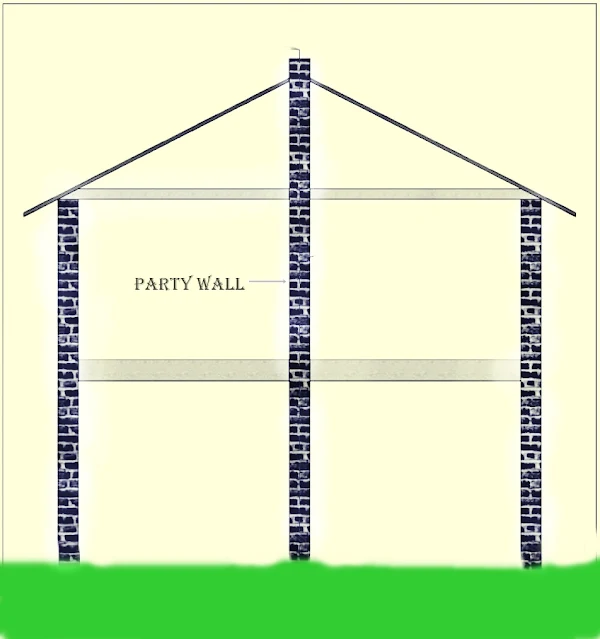The "Party Wall Notice" is a letter of acknowledgment that a building owner serves on an adjacent property owner before beginning any construction that may affect a partition, structure, or garden wall (built across a boundary).
However, a building owner must be aware of the various types of notices before
undertaking any construction work that falls within the scope of the Party Wall, etc.
Act 1996. The following types of construction work are covered by the Party Wall Act.
Construction of A New Wall at/on The Boundary Between Two Properties.
- Construction work on an existing structure or wall
- Cutting into a dividing wall
- Increasing or decreasing the height of a partition wall
- Deepening of a partition wall
- Removing chimney parapets or other projections on an exterior wall
- Demolition and reconstruction of an exterior wall
- Excavation near or below the foundation of an adjoining property
- Types of boundary walls
There Are Several Types of Boundary Walls or Boundary Structures
- Two of Same Walls
- This wall can be part of one building or two buildings of different owners.
- A wall that stands on the land of two owners without being part of a building.
- It can be a garden wall (except wooden fences).
What Partition Wall Indicator Should Be Used?
As a building
owner, you may need to provide different types of partition notices to the
adjacent owner depending on the nature of the construction project or its
impact on the property.
1. Construction Notice
This notice shall
be served by a building owner before undertaking any type of construction work
specified in Section 2 of the Party Wall, etc. Act. 1996, if the proposed work
affects existing party structures, such as.
·
Partition
walls/floors/partitions between buildings or parts of buildings.
- Boundary walls
- A boundary wall between two properties in separate ownership erected astride a boundary
- Neighbor's own property
A building owner may perform the following types of construction by serving this notice.
- Making holes for the insertion of beams or paving stones
- Removing chimney parapets
- Cutting in flashings, etc.
- This notice must be served at least two months before the start of the work.
2. Notification of Adjacent Excavations.
This notice must
be served on an adjacent owner by Section 6 of the Party Wall
Act 1996 if the proposed works are associated with the works described in this
section. The provisions of Section 6 of the Party Wall Act are designed to
avoid destabilizing the foundations of adjacent buildings or structures.
Two types of
excavations fall under Section (6) of the Party Wall etc. Act. 1996.
Excavations within
10 feet of an adjacent building when they reach a depth lower than the bottom of
the foundation of an adjacent building.
Excavation within
6 meters of an adjacent building if any part of the excavation intersects a
plane that extends downward at an angle of 45° from the bottom edge of the
foundation of the adjacent building.
The purpose of the excavation must be stated in the notice. For example, a
developer must indicate whether the proposed construction work is to shore up
or reinforce the foundation of an adjacent structure or building. The work may
involve underpinning. This notice must be served at least two months before
the start of the project.
The notice of
excavation shall be accompanied by section drawings and plans showing the
location of the excavation about the existing buildings and the depth of
the excavation.
3. Notice of The Line of Intersection
The intersection
line (imaginary line) separates the properties of adjoining owners. It may be
that this wall has not yet been built or that it has already been built on the
line, making it a simple boundary wall located on an owner's property. This
notice must be served at least one month before the project.
If you are
planning a construction project near a neighboring property wall and are unsure
of what type of notice you need to serve on the adjacent property owner, you
can always contact us. We offer a 30-minute free consultation on the subject of
partition walls.










0 Comments